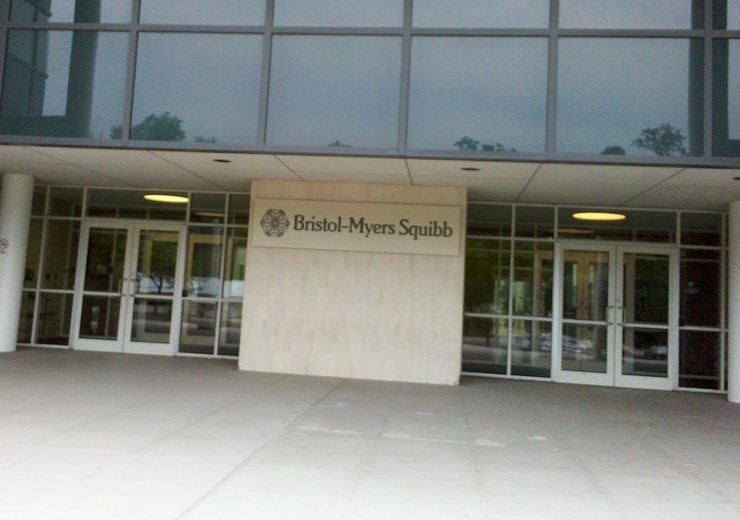The EC approval is based on results from the CheckMate -9ER an open-label, randomised, Phase 3 clinical trial evaluating patients with metastatic renal cell carcinoma

Entrance to the Bristol-Myers Squibb building. (Credit: Jonathan Schilling/Wikipedia.)
Bristol Myers Squibb has received the European Commission (EC) approval for its Opdivo (nivolumab) in combination with Cabometyx (cabozantinib) to treat advanced renal cell carcinoma (RCC).
Opdivo is a PD-1 immune checkpoint inhibitor designed to harness the body’s own immune system to help restore anti-tumour immune response.
Opdivo plus Cabometyx combination was previously approved by the US Food and Drug Administration (FDA) in January this year, for the first-line treatment of advanced RCC.
Bristol Myers Squibb vice president and genitourinary cancers development programme lead Dana Walker said: “With this approval, we can now offer patients two different Opdivo-based combinations that have demonstrated significant survival benefits versus sunitinib.
“Today’s milestone builds on our heritage of developing and delivering novel treatments for patients with advanced renal cell carcinoma, first with the only dual immunotherapy option, Opdivo plus Yervoy, and now with a new immunotherapy and tyrosine kinase inhibitor regimen.
“We look forward to working with a broad range of European stakeholders to bring Opdivo in combination with Cabometyx to patients who may benefit from this treatment.”
The EC approval is based on results from the CheckMate -9ER an open-label, randomised, Phase 3 clinical trial evaluating patients with metastatic renal cell carcinoma (RCC).
Phase 3 CheckMate -9ER trial is sponsored by Bristol Myers Squibb and Ono Pharmaceutical and co-funded by Exelixis, Ipsen and Takeda.
In the Phased 3 trial, Opdivo plus Cabometyx showed superior efficacy across progression-free survival (PFS), the primary endpoint, objective response rate (ORR) and overall survival (OS) compared to sunitinib.
Also, the combination treatment was well tolerated, with a safety profile similar to that of the known profiles of both medicines and a low rate of treatment-related adverse events (TRAEs).
Furthermore, Opdivo plus Cabometyx demonstrated sustained efficacy improvements compared to sunitinib, in an updated analysis conducted with 16 months minimum follow-up.
